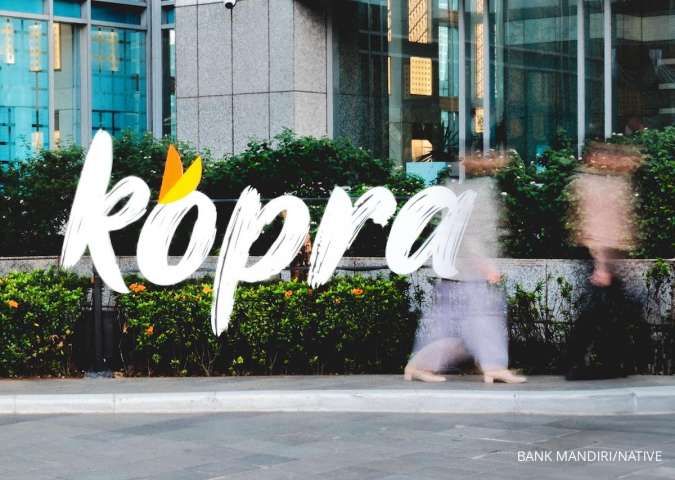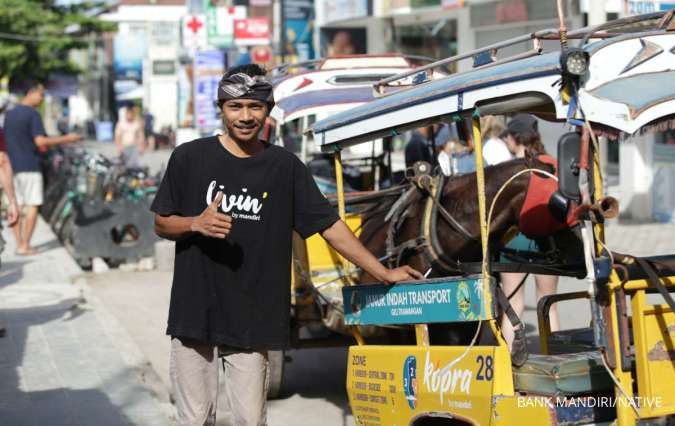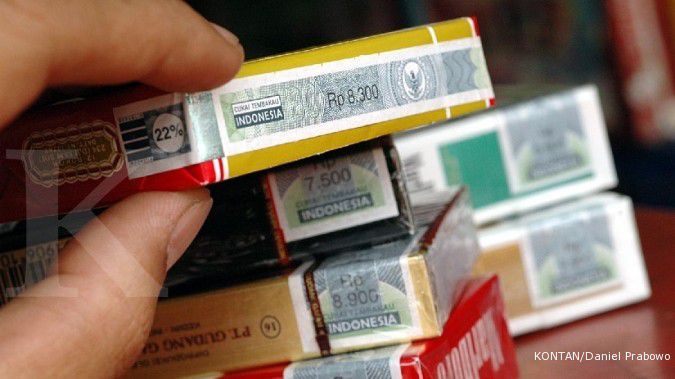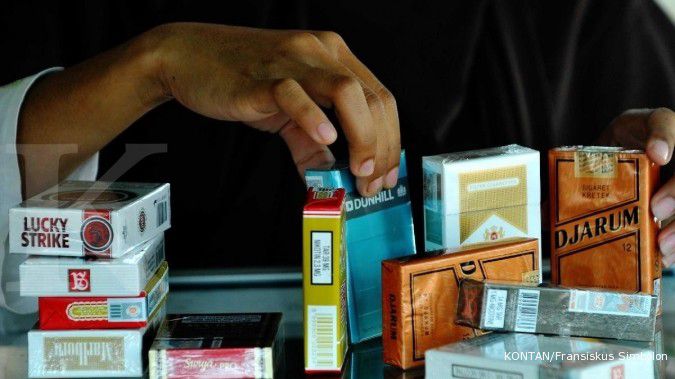JAKARTA. The planned increase in tobacco excise by 8.5 percent this month would neither push up the price of cigarettes significantly nor reduce the number of cigarette smokers in the country, experts have said. Abdillah Ahsan, a researcher with the University of Indonesia demographic center (LDUI), said on Wednesday that the number of cigarette smokers in Indonesia would continue to grow because of the very low price of cigarettes.The low price attached to cigarettes both attracts people to initially take up the habit and ensures the return business of addicted patrons.“Cigarettes should be taxed highly so that cigarette consumption decreases,” he told a press conference held jointly by the LDUI and the Southeast Asia Initiative on Tobacco Tax (SEATCA ITT) Indonesia.Abdillah added that the government needs to impose hefty taxes particularly on two market-dominant cigarette products, the machine-made kretek (clove cigarette) and the hand-made kretek. The Finance Ministry declared that the increase in cigarette excise by 8.5 percent will be put in to effect later this month. “Even with the new tax, people can still afford to buy cigarettes; therefore, we consider that this tax increase will have little impact on tobacco consumption,” said Abdillah.The government expects Rp 88 trillion (US$9.14 billion) from cigarette tax revenue in 2012. The sale of cigarettes is expected to reach 268 billion cigarettes this year. This exceeds the sales targets set by the tobacco industry’s road map. Cigarette products in Indonesia have tax rates ranging from Rp 80 to Rp 380 per cigarette stick. The tax rate for the hand-made kretek from category 3 stands at 38 percent per cigarette. The highest cigarette product tax rate in Indonesia stands at only 56 percent per cigarette, despite the World Health Organization (WHO) recommending that the levy imposed on cigarette products should stand at least two thirds or 70 percent of the sale price of each cigarette.Citing a survey on 2,000 smokers conducted by the LDUI, Abdillah said the average price of a pack of cigarettes people would consider as affordable was less than Rp 25,000. Currently, a pack of cigarettes costs between Rp 5,000 and Rp 15,000 per pack. People can even buy a singular cigarette for only Rp 250 — cheaper than candy.To protect people from the health risks associated with smoking, the government is currently deliberating a regulation on the control of tobacco products that would regulate smoking practices. It would cover three main issues — the inclusion of health warnings on packaging, tobacco advertising control and the designation of smoke-free zones — however, the signing of the government regulation (PP) remains unclear.“It is obvious that the tobacco industry is trying to influence the process, despite ministries and other stakeholders voicing no difference of opinion on the draft regulation, the government has yet to sign the PP, ” said Tulus Abadi of the Indonesian Consumers Foundation (YLKI).A recently published Global Adult Tobacco Survey (GATS), Indonesia Report 2011, showed that Indonesia is one of the countries with the highest prevalence of tobacco smokers. About 61.4 million people in the country aged 15 years and above are active smokers, it says.The Jakarta Post/Elly Burhaini Faizal
Cigarettes cheaper than candy
JAKARTA. The planned increase in tobacco excise by 8.5 percent this month would neither push up the price of cigarettes significantly nor reduce the number of cigarette smokers in the country, experts have said. Abdillah Ahsan, a researcher with the University of Indonesia demographic center (LDUI), said on Wednesday that the number of cigarette smokers in Indonesia would continue to grow because of the very low price of cigarettes.The low price attached to cigarettes both attracts people to initially take up the habit and ensures the return business of addicted patrons.“Cigarettes should be taxed highly so that cigarette consumption decreases,” he told a press conference held jointly by the LDUI and the Southeast Asia Initiative on Tobacco Tax (SEATCA ITT) Indonesia.Abdillah added that the government needs to impose hefty taxes particularly on two market-dominant cigarette products, the machine-made kretek (clove cigarette) and the hand-made kretek. The Finance Ministry declared that the increase in cigarette excise by 8.5 percent will be put in to effect later this month. “Even with the new tax, people can still afford to buy cigarettes; therefore, we consider that this tax increase will have little impact on tobacco consumption,” said Abdillah.The government expects Rp 88 trillion (US$9.14 billion) from cigarette tax revenue in 2012. The sale of cigarettes is expected to reach 268 billion cigarettes this year. This exceeds the sales targets set by the tobacco industry’s road map. Cigarette products in Indonesia have tax rates ranging from Rp 80 to Rp 380 per cigarette stick. The tax rate for the hand-made kretek from category 3 stands at 38 percent per cigarette. The highest cigarette product tax rate in Indonesia stands at only 56 percent per cigarette, despite the World Health Organization (WHO) recommending that the levy imposed on cigarette products should stand at least two thirds or 70 percent of the sale price of each cigarette.Citing a survey on 2,000 smokers conducted by the LDUI, Abdillah said the average price of a pack of cigarettes people would consider as affordable was less than Rp 25,000. Currently, a pack of cigarettes costs between Rp 5,000 and Rp 15,000 per pack. People can even buy a singular cigarette for only Rp 250 — cheaper than candy.To protect people from the health risks associated with smoking, the government is currently deliberating a regulation on the control of tobacco products that would regulate smoking practices. It would cover three main issues — the inclusion of health warnings on packaging, tobacco advertising control and the designation of smoke-free zones — however, the signing of the government regulation (PP) remains unclear.“It is obvious that the tobacco industry is trying to influence the process, despite ministries and other stakeholders voicing no difference of opinion on the draft regulation, the government has yet to sign the PP, ” said Tulus Abadi of the Indonesian Consumers Foundation (YLKI).A recently published Global Adult Tobacco Survey (GATS), Indonesia Report 2011, showed that Indonesia is one of the countries with the highest prevalence of tobacco smokers. About 61.4 million people in the country aged 15 years and above are active smokers, it says.The Jakarta Post/Elly Burhaini Faizal




